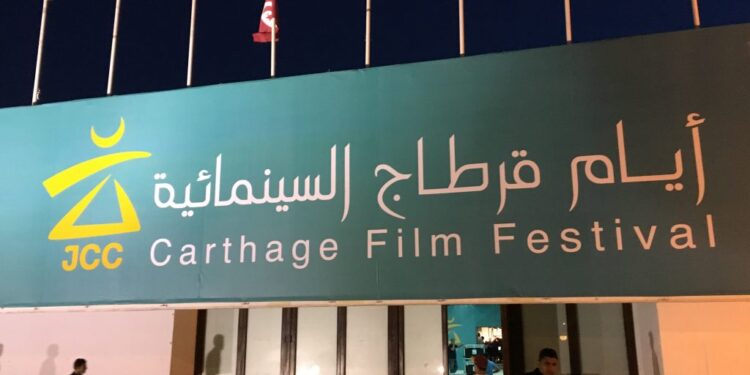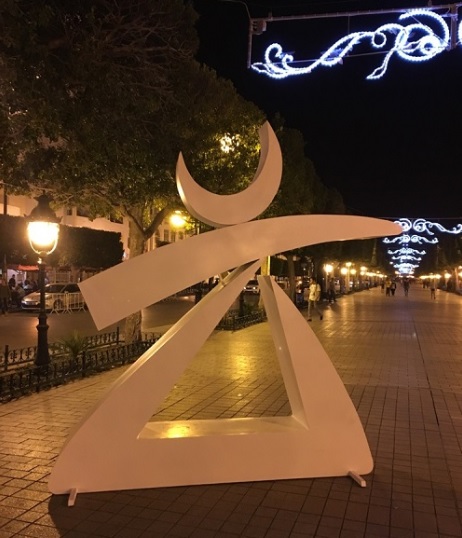It is finally the big day, D -Day. On the side of the Palais des Congrès, the preparations are going well to transform it into the festival palace. We work everywhere. Inside the palace itself, last technical tests, last checks before the big evening. You can believe me, it’s very beautiful. Tanit is highlighted, the 50 too. Outside, a large kitchen and a restaurant have been installed. The red carpet will be put in place incessantly….
Having a festival palace is a plus: everything is centralized (media center, catering, special events, etc.) and it’s more professional. This will allow filmmakers and journalists to work in better conditions. And it still gives more appearance at the festival. Some criticize and are against it, we hear them here and say that the JCC must remain a militant festival as during its creation.
But, glamorous or militant?
This question has been recurrent for several years concerning the JCC. Should she arise?
What does it mean militant and what does glamor mean?
JCCs are the oldest festival on the African continent. In 1966, he was created to promote Arabic and African cinema in a militant spirit. But we are in 2016 today, and in 50 years things have evolved, the world has changed. You have to know how to be from your time.
Today, competition has become tough. Marrakech and especially Dubai festivals shade the JCC. They invest in glamor, they manage to attract the spotlights, they invite large international stars, offer high prices … and are talked about. They know how to sell their image and manage to conquer professionals who give them more and more priority.
During JCC 2015, the international press looked a lot in Tunisia. The reaction of the Directorate of the JCC and the decision to maintain the festival, despite the attack and the curfew, had a very positive echo around the world. Large international newspapers had talked about the event. It was necessary to capitalize on this.
For this 2016 edition, the JCC tried to reconcile the two: militancy and glamor. The JCCs will not lose their identity and their character, but there is an attempt to become more attractive.
The festive side has been highlighted. Small details have been thought of, such as requiring, on the very invitation, an evening outfit for the opening ceremony. To give a Tunisian image, the opening film is a Tunisian film, in this case Aleppo Fleur From Ridha Behi, with Hend Sabry in the main role. To give more glamor we will also try to create the event around the first screening of films in competition. With possibly climbing the steps with the film team. The celebration of the fiftieth anniversary also contributes to this festive aspect.
The festival, although cultural events at the service of cinema, must be used to give a good image of our country. All this glamorous side will be used to highlight Tunisia. The repercussions can only be positive on all levels, as well to promote Tunisian cinema, as well as to sell “Tunisia land of filming” and even simply to attract tourists.
At the same time, the activism side has not been neglected: for example the experience of 2015 is still continuing this year with projections in prisons, and has even been extended to barracks. The JCCs will also be in the regions, in universities. Round tables, Master Class, workshops are planned. An international conference on the “film heritage in danger” will be held on October 29 and 30. A book “JCC50 + fertile memory” has been published …
JCC 2016 – Tanit on Avenue Habib Bourguiba – Tunis
In conclusion, a film festival is a whole. When successful, it is the best advertising campaign for the country and its tourism. You just have to see the Cannes Film Festival which manages to bring an entire region to life and which gives brilliance to all of France.
Good festival!
Neïla Driss
Read on the same subject:









